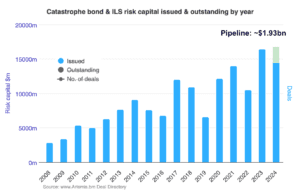Annual Health FSA Contribution Limit to Increase in 2023

On October 18, the IRS announced that the annual contribution limit in 2023 for health flexible spending accounts (health FSAs) will be increased to $3,050 — double the $100 increase from 2021 to 2022.
The maximum carryover amount is also rising. If an employer’s plan allows unused health FSA amounts to be carried over to the following year, the amount will now be $610.
Healthcare Flexible Spending Account Limits Rise
A flexible spending account (FSA) is a type of salary reduction account that allows individuals to set aside pre-tax money from their pay checks each month for health, dental and vision care expenses such as doctor’s visits and prescriptions not covered by insurance.
Limited-purpose FSAs, which can only be used to pay for vision and dental expenses, are also subject to new contribution limits. These types of FSAs can be used with health savings accounts (HSAs).
The IRS increased 2023 HAS contribution limits in April, so that individuals can contribute a maximum of $3,850, while families will be limited to $7,750.
Employers should review communications related to open enrollment materials so they can include accurate information about the new limits and any other updates made since last year’s open enrollment process ended.
Employer Contributions to Health FSAs
Employers also have the option to contribute to employee health FSAs. These employer contributions are in addition to the IRS limit.
However, there are some limitations on how much employers can contribute based on employee contributions. For instance, if an employee does not contribute to a health FSA, an employer can still contribute up to $500, but beyond that, the employer can match employee contributions up to the $3,050 limit.
Increases Do Not Apply to Dependent Care FSAs
These increases do not apply to dependent care FSAs. The dependent care FSA (DC-FSA) allows eligible taxpayers to set aside a portion of their income to pay for qualifying dependent care expenses.
The maximum annual contribution limit for a DC-FSA is $5,000 for single taxpayers and married couples filing together or $2,500 for married people filing separately. The contribution limit is set by the IRS and is not indexed for inflation.
Commuting Benefits Increases
The IRS has announced that the limit on qualified transportation benefits will be increased $20 per month in 2023. Therefore, the new monthly limit for transit passes and van pool services will be $300, and the limit for qualified parking will also be $300.
Under current law, employer-funded parking and mass-transit subsidies are tax-exempt for employees. Employees can also use pretax income to pay their own mass transit or workplace parking costs through an employer- sponsored salary deferral program.
Adoption Benefits Rise
For 2023, the maximum amount an employer can subsidize for eligible child-adoption expenses that can be excluded from an employee’s gross income is $15,950, up from $14,890 for 2022.
The adoption tax credit is a non-refundable credit available to taxpayers who adopt a child. The credit is designed to offset the costs of adoption, including agency fees, court costs, attorney fees, and travel expenses. It does not cover expenses involved in an employee adopting a stepchild.
The amount that can be excluded phases out for taxpayers with modified adjusted gross incomes (MAGI) of more than $239,230 and is not available for those with MAGI above
$279,230. These amounts are valid for 2023 and are adjusted annually.
Qualified Small Employer HRA Limits Increase
Qualified small employer health reimbursement arrangements (QSEHRA) also saw an increase for 2023. The maximum annual limit for QSEHRAs is $5,850 for individual coverage and $11,800 for family coverage.
QSEHRAs are employer-funded health reimbursement plans that enable small employers to provide their employees with tax-free funds in order to buy individual health policies, though the money can also be used to pay for out-of-pocket health care expenses.
The QSEHRA is available to small employers with fewer than 50 full-time equivalent employees. These employers must not be offering group health insurance to their employees and must comply with other requirements.
For more Employee Benefits tips, contact INSURICA today.
Copyright © 2023 Smarts Publishing




